in fact, you can do it, you just need to configure the router :
{
"/api": {
"target": "https://api.exampledomain.com",
"secure": false,
"logLevel": "debug",
"router": {
"localhost:4200" : "http://localhost:3000/exampledomain",
"staging.exampledomain.com" : "http://api.staging.exampledomain.com"
}
}
}
What this do :
- yout url match the proxy => will call the target defined
- the host url match one router configuration => use the new target
For example :
I've deployed on localhost:4200 my angular app, when calling the url "api/callMeMaybe", then the router detect it and redirect in "http://localhost:3000/exampledomain".
If I've been on staging.exampledomain.com then the redirection will have be to "http://api.stagging.exampledomain.com".
Then, if none match, it keep the original target redirection.
Be careful, as order matters (the 1st match will be take)
Here is the documentation with an example
Edit
You can find the host value on your chrome debugger Network tab and selecting the api call, you get this details : 
